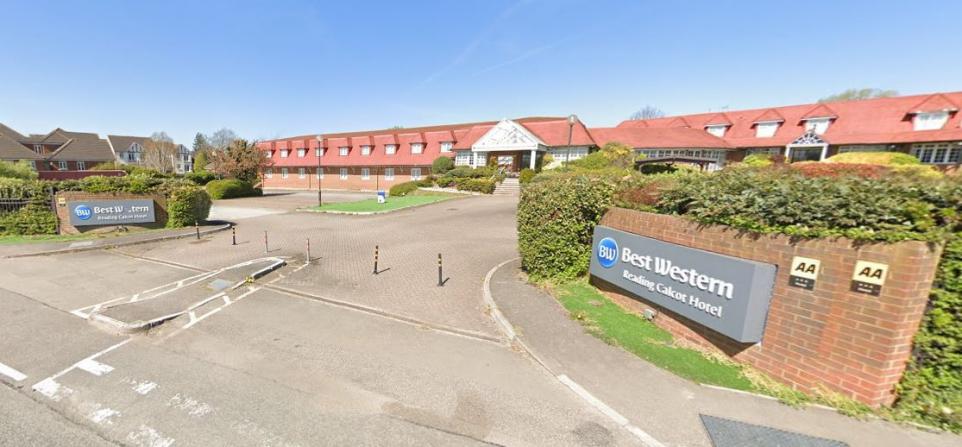From artisanal crepes to rebellious cheesecake waffles, Reading's breakfast rebels are transforming morning meals. These seven spots will revolutionize how you start your day.
From Hotel to Asylum Center
The Best Western Calcot Hotel, a 78-bedroom establishment located on Bath Road in West Reading, closed its doors to the public in March 2020 due to the COVID-19 pandemic. In an unexpected turn of events, the hotel was repurposed as a processing centre for asylum seekers, part of a broader government initiative to manage the influx of displaced individuals seeking refuge in the United Kingdom.
Transition of Afghan Refugees
In August 2023, Afghan refugees who had been staying at the Calcot Hotel were moved to other temporary accommodations. This move was part of the government's efforts to transition asylum seekers from hotel accommodations to more permanent housing solutions. The closure of the hotel as an asylum centre marked the end of a two-year period during which it had served this purpose.
Government's Asylum Accommodation Policy
The UK government has been actively working to reduce the use of hotels for housing asylum seekers. As of May 2024, 150 asylum hotels have been closed and returned to their communities. This initiative aims to reduce the strain of illegal migration on local communities and find more appropriate, cost-effective accommodation solutions for asylum seekers.The Home Office has been negotiating with various accommodation providers to find affordable alternatives to hotel accommodation.
This approach is intended to relieve pressure on communities and manage asylum seekers more appropriately, aligning the UK with practices in other European countries.Large sites, such as former military bases and barges, are being considered as alternatives to reduce demand on the private rental market. These larger capacity sites allow the Home Office to respond more flexibly to fluctuations in demand.
Government's Stance on Hotel Accommodation
The UK government has been working to reduce the use of hotels for housing asylum seekers. As of May 2024, 150 asylum hotels have been closed and returned to their communities. This initiative aims to reduce the strain of illegal migration on local communities and find more appropriate, cost-effective accommodation solutions for asylum seekers.
Potential Reopening
Recent rumors suggest that the Calcot Hotel may soon reopen to the public. While no official confirmation has been provided, there are signs of activity at the property:
- Staff members have hinted at the possibility of taking bookings in the near future.
- The hotel remains cordoned off, but preparations appear to be underway.
Historical Significance
The Calcot Hotel has been a fixture in Reading's hospitality landscape for decades. It was under the ownership of the Dunn family for 40 years before being sold to SGS Hotels in 2016. At the time of the sale, SGS Hotels had plans for a major refurbishment, including cleaning and repainting the roof, acquiring new furniture, and laying down new carpets.
Community Impact
The potential reopening of the Calcot Hotel has sparked interest and discussion in the local community:
- Local business owners are optimistic about increased foot traffic and higher patronage if the hotel resumes operations.
- The hospitality and tourism sectors in Reading, still recovering from the pandemic, could benefit significantly from the hotel's revival.
Local Authority Involvement
West Berkshire Council has been actively involved in supporting the Afghan refugees during their stay at the Calcot Hotel. The council worked closely with the Home Office to ensure a smooth transition for the evacuees when the hotel closed in August 2023. The Refugee Support Group in Reading (RSG) has also been providing support to the evacuees. RSG caseworkers have been collaborating with Home Office liaison officers and West Berkshire Council officials to ensure that families are supported in temporary accommodation until permanent housing becomes available.
Looking Ahead
As of now, official statements from hotel management or government officials are still pending. The community eagerly awaits further developments, hoping for the return of this landmark establishment to Reading's hospitality scene.
The Calcot Hotel's journey reflects the challenges faced by the hospitality industry in recent years and serves as an example of how properties can be repurposed and potentially revived in changing circumstances. Its story is intertwined with broader national policies on asylum seekers and the ongoing efforts to balance humanitarian needs with local community interests.
It's important to note that the UK government's broader strategy includes deterring illegal migration and reducing the strain on British taxpayers. The partnership with Rwanda is part of this strategy, aimed at discouraging people from making dangerous illegal crossings to the UK.
